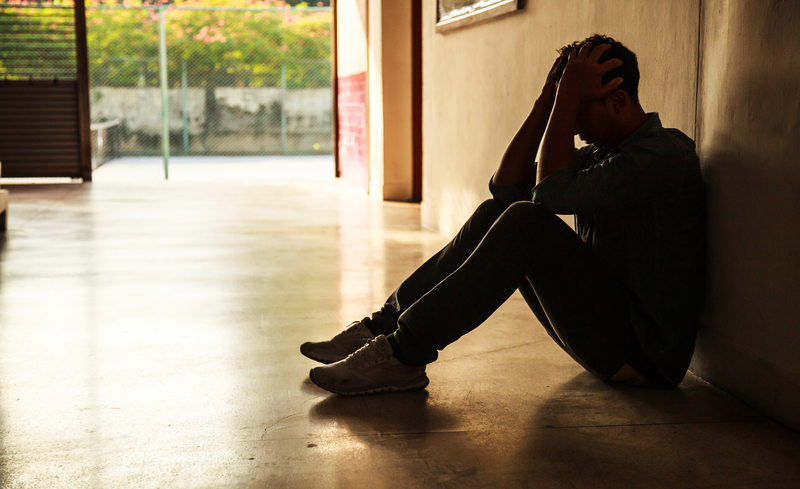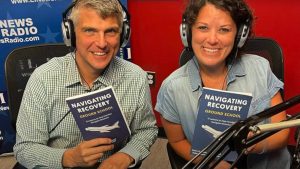
Emotional bottoms cause more harm than substances ever did
Hitting rock bottom after 8 years of sobriety was one of my biggest life lessons. When I began my sobriety recovery journey, I was 32 years old and in the process of starting a medical practice with my partner. He was a doctor and I was an entrepreneur, it was the perfect venture.
When we opened our doors I did all the non-clinical work. From marketing and accounting to administration and garbage collection. I was constantly moving from one area to the next. I was a jack-of-all-trades and I loved it. Our business grew rapidly. Within the first three years, we opened two new locations in New York City, had 85 employees, and a bi-monthly payroll of $250,000.
For an alcoholic, success can be as dangerous as failure
I had dedicated all my time, energy, and resources to creating my company. I helped design the facilities, selected the business cards, hired the staff, chose the computer systems, and planned out every little detail. When it blossomed and flourished, it was a testament to all the work I had done.
Throughout this process I was at the top of my game. I was well-respected and in demand by colleagues and investors alike. However, our growth became all-consuming. Unbeknownst to me, my entire life WAS the company. After 10 years of operation, everything from my relationships, investments, aspirations, even my perception of self, was tied to it. So, when we sold it to United Health Care, I was devastated.
As my unhappiness grew, so did my desire to drink
For six months, we went through a process of “due-diligence” wherein they combed through every detail of the business to ensure that everything was in order. Then one day, unexpectedly, a lump sum of money was wired to my account – more money than I have ever had in my entire life.
But in that moment I felt like I lost everything.
To receive my payouts, I had to continue working with the company for another two years. It was an excruciating experience. Weekly meetings became endless ordeals as I sat on the sidelines, listening to decisions being made without my input. Feeling insignificant, invisible, and disposable, I began to sink into a deep depression. With no friends, no passion, no sense of purpose, I no longer had a reason to get out of bed. I had no reason to live.
All the external things that defined me had disappeared into thin air.
There’s no shame in asking for help before you relapse
As my unhappiness grew, so did my desire to drink. Although I had been in recovery for almost ten years, maintaining my sobriety became more challenging every day. One night, I even picked up a beer and stared at it for a few minutes, considering my options.
After that experience, it became clear to me that if I continued down this path, I would not live through it. After four months of severe depression, I checked myself into a drug and alcohol treatment center.
During the first few days, I was completely broken. I barely moved or spoke to anyone and could only muster up the strength to cry. I felt like I was back at square one
But I realized that asking for support before I relapsed was the best decision I could have made. I knew I needed to be in a facility for my own safety.
If I didn’t make the call, I would’ve gotten blackout drunk that night. I would’ve disappointed my family, spent an outrageous amount of money, and ruined years of recovery, all because I no longer wanted to live.
Creating a balanced life in recovery takes effort
Through rehabilitation, I was medicated, monitored, and supported daily. It took a week before I began to stabilize. In this environment, I was able to pull myself out of the dark and rebuild my sense of self, brick by brick.
After I was released from treatment I had to rebuild my life and learn how to redefine myself outside of the company. In the process I made new friends, rediscovered old passions, and developed a spiritual practice that suited me.
Sobriety isn’t easy; there has been many ups and downs throughout my journey. Creating a balanced life takes effort and I had to commit to working from the ground up. However, I now recognize that during difficult times, re-committing to recovery has been the best course of action for me.
Sobriety isn’t easy, but it saved my life
I share this story to show you that rock bottom doesn’t always happen before recovery. Sometimes, it happens after – and that’s okay. You will survive it. But instead of returning to old habits, recognize that there are more effective methods available to you. Seek out treatment and utilize the resources around you. Reaching out for help and relying on the support of specialists, coaches, friends, and family might just be what carries you through.
About Adam Banks
Adam Banks is a certified interventionist and the owner of Adam Banks Recovery. After receiving an MBA from the University of Chicago, Adam built a company that was later acquired by United Health Care. His discipline and attention to detail comes from his former career as an airline pilot, holding an ATP, the FAA’s highest license.
Today, Adam is dedicated to helping others achieve long-term sobriety. His work has guided executives, pilots, and physicians on paths to recovery. Adam brings families together through a loving and inclusive approach.
Adam has authored four books on addiction. His recent work, Navigating Recovery Ground School: 12 Lessons to Help Families Navigate Recovery, educates families on the entire intervention process. He also offers a free video course for families considering an intervention for a loved one.
Adam is available for alcohol and drug intervention services in New York, Long Island, the Hamptons as well as nationally and internationally.




